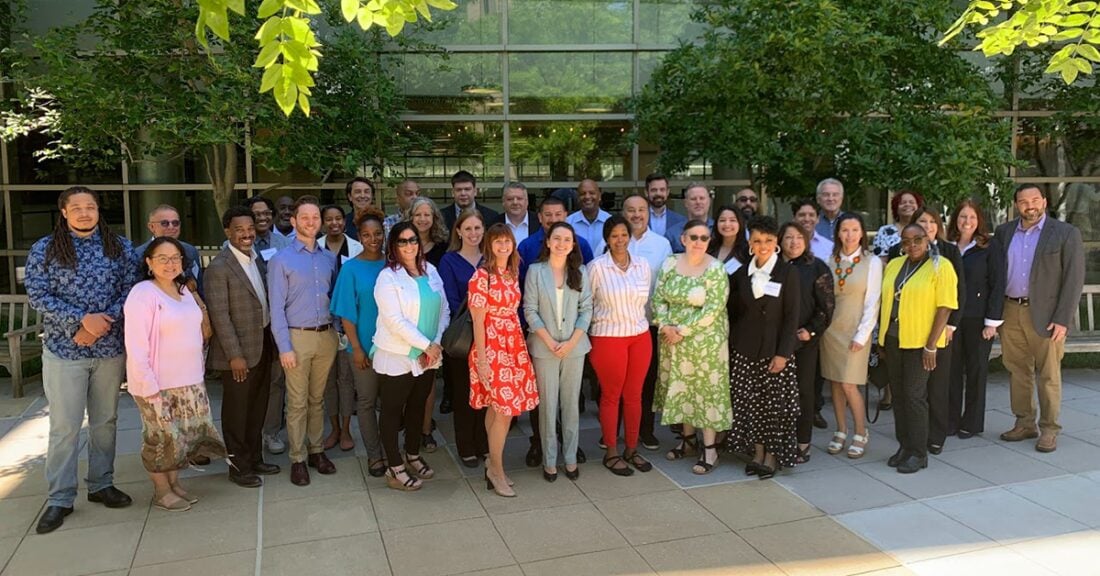Five Sites Selected for Juvenile Probation Certificate Program

Participants in the 2022 Transforming Juvenile Probation certificate program at Georgetown
In June 2024, teams from five jurisdictions will gather in Washington, D.C., to learn about adopting a safer, youth-centered approach to juvenile probation as part of the Transforming Juvenile Probation Certificate Program.
Supported by the Annie E. Casey Foundation, the program offers intensive instruction, discussion and planning support to selected jurisdictions that are ready to question the purpose and goals of probation. It was developed in partnership with the Center for Juvenile Justice Reform (CJJR) at Georgetown University’s McCourt School of Public Policy and the Council of State Governments Justice Center.
The 2024 program is the third time it has been offered and includes juvenile justice jurisdictions in:
- Greene County, Ohio;
- The state of Maine;
- Orange County, California;
- Riverside County, California; and
- Wayne County (Detroit), Michigan.
“This is an opportunity for jurisdictions to fully shift the role of probation away from surveillance and compliance and toward promoting personal growth, positive behavior change and long-term success for youth,” says Stephen Bishop, associate director of probation and system transformation in the Foundation’s Juvenile Justice Strategy Group.
Each team, capped at eleven members, has a chief probation officer, judge and prosecutor on its roster.
Over the course of the program, each team will receive technical assistance as they develop a capstone project that identifies a clear action for transforming juvenile probation in their jurisdiction. This may include:
- developing and implementing new policies and practices;
- training staff and stakeholders to promote buy-in and collaboration; and
- assessing, evaluating and sustaining progress.
Upon approval of a team’s capstone project, its members will earn an executive certificate from Georgetown University and join CJJR’s network of more than 1,900 fellows. The university will also provide teams with extensive technical assistance to support planning and implementation at home.
The curriculum is rooted in the principles and practices described in Casey’s Transforming Juvenile Probation and Transforming Juvenile Justice Systems to Improve Public Safety and Youth Outcomes from the CJJR and Council of State Governments Justice Center. It covers topics such as:
- incorporating practices for fairness and equity;
- youth, family and community partnership and empowerment;
- diversion as an off-ramp from the formal justice system;
- decision making about the length and intensity of probation terms;
- roles of probation officers; and
- leading transformational change.
What Do Past Participants Say?
Rosie Medina, a chief probation officer who led a team from El Paso County, Texas, noted the “unequivocal value” of participating in the 2022 certificate program. Medina cited the technical assistance and training as critical to the “implementation of strategies that will be sustainable and will yield improved positive outcomes for youth involved in our system as we look into the future.”
Henry Gonzales, Medina’s counterpart in Harris County, Texas, appreciated the opportunity to learn from the experiences and insights of others in the field. “Active engagement in the program creates space for conversation that promotes curiosity about doing things differently,” he said.






